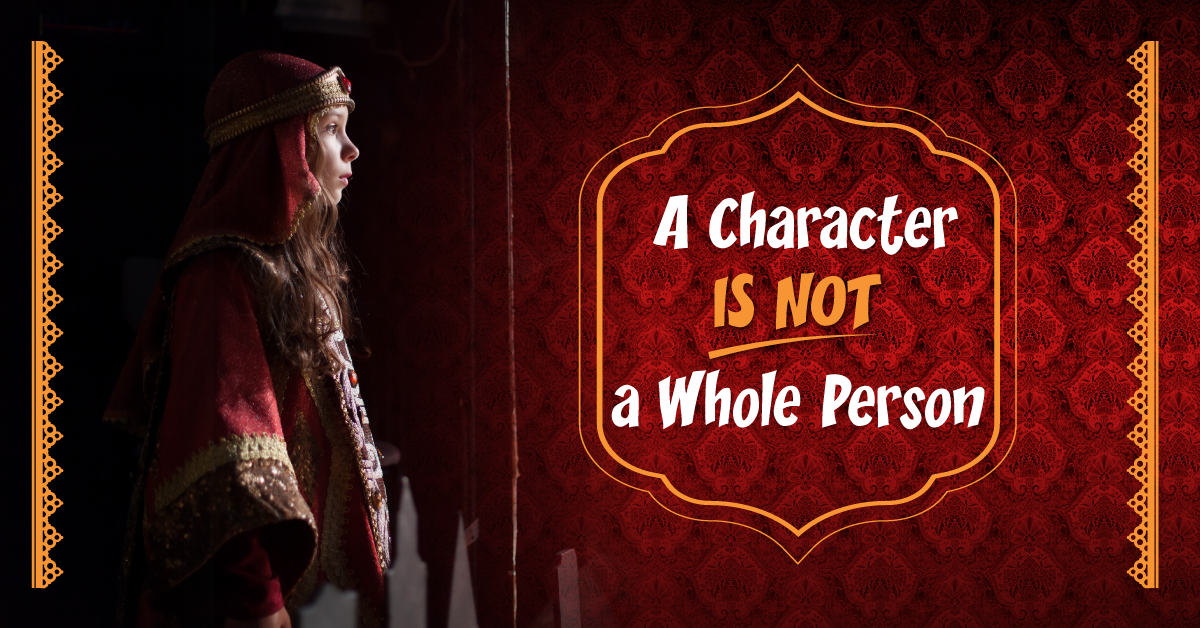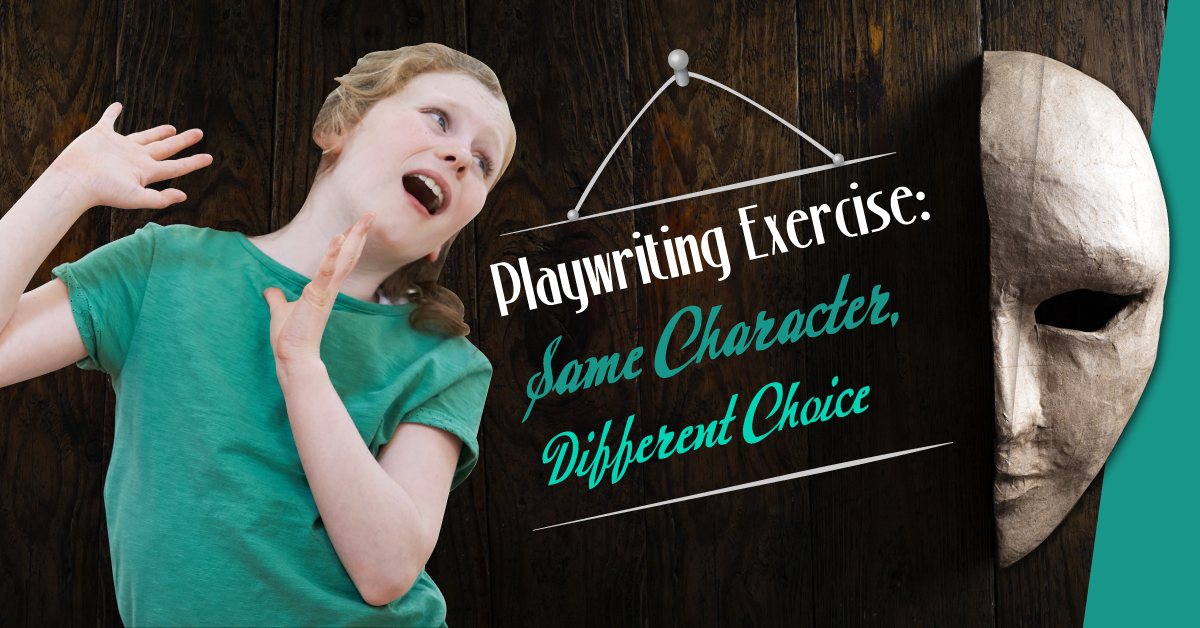A Character Is Not a Whole Person
One thing that often comes up in student writing is that characters only seem to exist from the first page to the last page. Students don’t think of their characters as having lives outside the world of the play, or before/after the action of the play. This can result in flat, surfacey characters who only act to move the story forward, rather than being dropped into a situation and reacting as a human being.
If we want students to write three-dimensional characters, then they have to do some character development work that might not make it into the actual play. The more they know about a character, the more they can determine how that character is going to react in a situation.
Read this quote to students and discuss its meaning.
“A character is never a whole person, but just those parts of him that fit the story or the piece of writing. So, the act of selection is the writer’s first step in delineating character. From what does he select? From a whole mass of what Bernard DeVoto used to call, somewhat clinically, “placental material.” He must know an enormous amount more about each of his characters than he will ever use directly—childhood, family background, religion, schooling, health, wealth, sexuality, reading, tastes, hobbies—an endless questionnaire for the writer to fill out. For example, the writer knows that people speak, and therefore his characters will describe themselves indirectly when they talk. Clothing is a means of characterization. In short, each character has a style of his own in everything he does. These need not all be listed, but the writer should have a sure grasp of them. If he has, his characters will, within the book, read like people.”
WILLIAM SLOANE
Discussion Questions
1. What does the phrase “A Character Is Not a Whole Person” mean?
2. Do you keep parts of yourself separate? Is there a way you act at school that you don’t act at home?
3. How is it useful to create details that don’t occur in the play?
4. How can learning about the whole person help you as a playwright?
Exercise
1. Character Unknowns:
- Choose a character in a play that you have studied or are familiar with.
- Give that character a character detail that doesn’t currently exist in the play. (Eg: In Hamlet, write down Hamlet’s favourite band, his favourite food, a food that he hates but his mom used to make him eat, his biggest pet peeve, the fact that he’s afraid of snakes, etc.)
- Write a monologue for this character that identifies this unknown character detail. You still have to keep the character in the world of the play (Hamlet hates his stepdad, is friends with Horatio, etc.) but ask what can you learn about the character by writing about these new details.
- Read the monologues out in small groups. What details did other students come up with?
2. Complete the same exercise with the play you’re writing. Create a character detail that is currently unknown in the world of the play. Write a monologue for your character that focuses on that detail.
Related Articles
81 Playwriting Exercises
by Lindsay Price
81 exercises that can be used to get students in the habit of writing on a regular basis.
How to Write a Play for your Students
by Lindsay Price
You’ve chosen to write a play for your students! Where do you start?
Resource Bundle - Playwriting
Use these 4 Playwriting drama teaching resources to make playwriting possible with your students. Great for warm-ups, prompts, writer's block and more!






